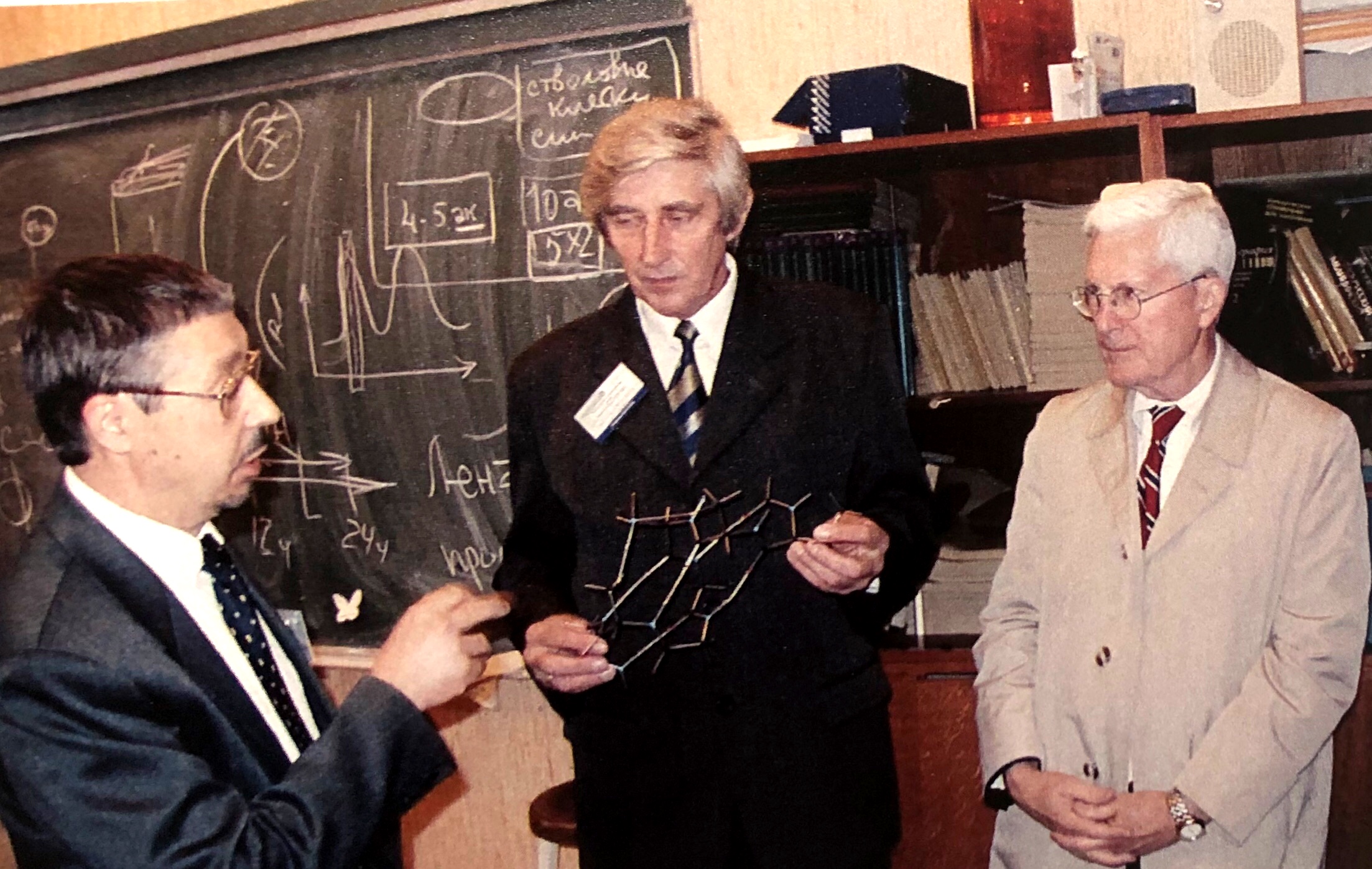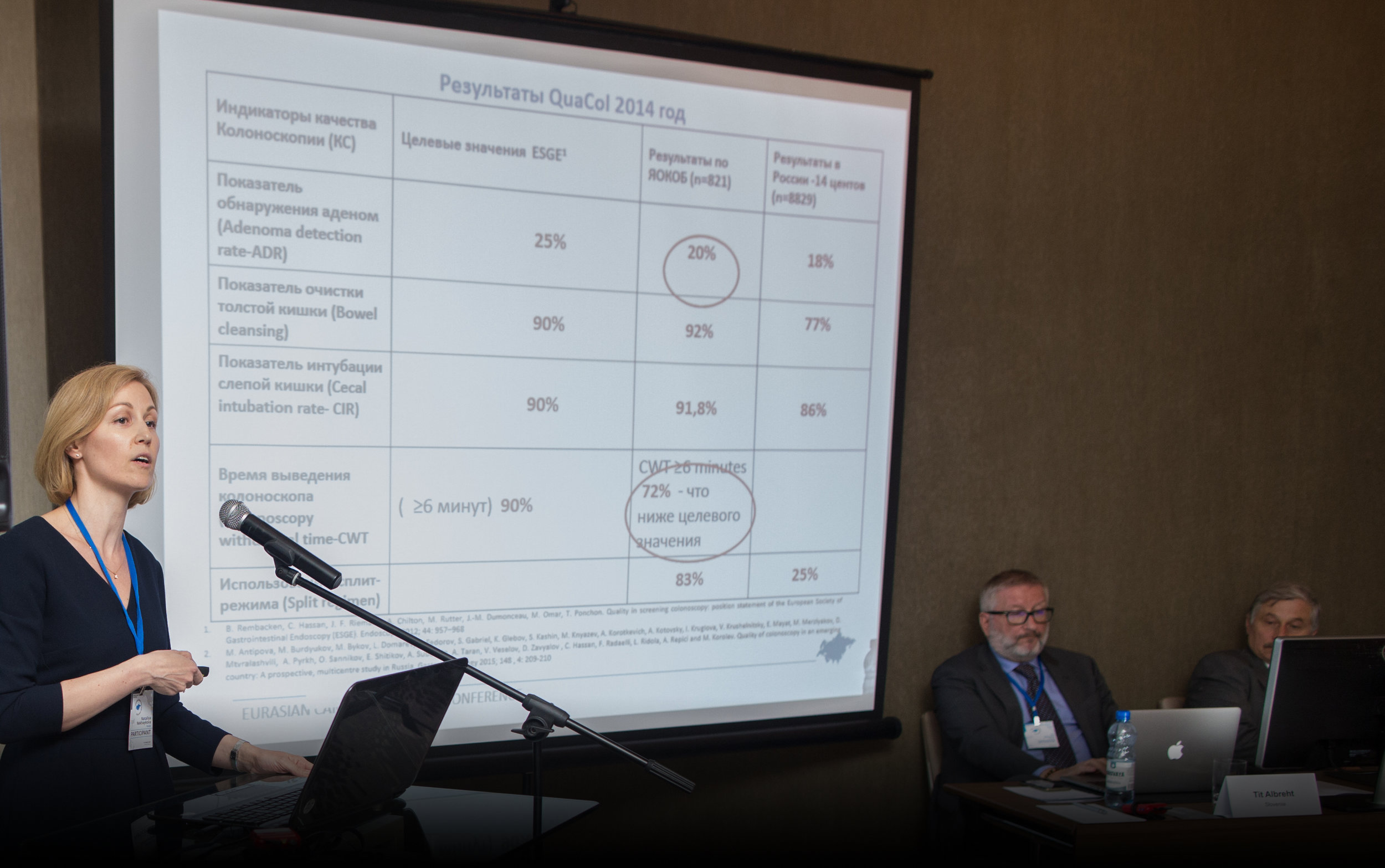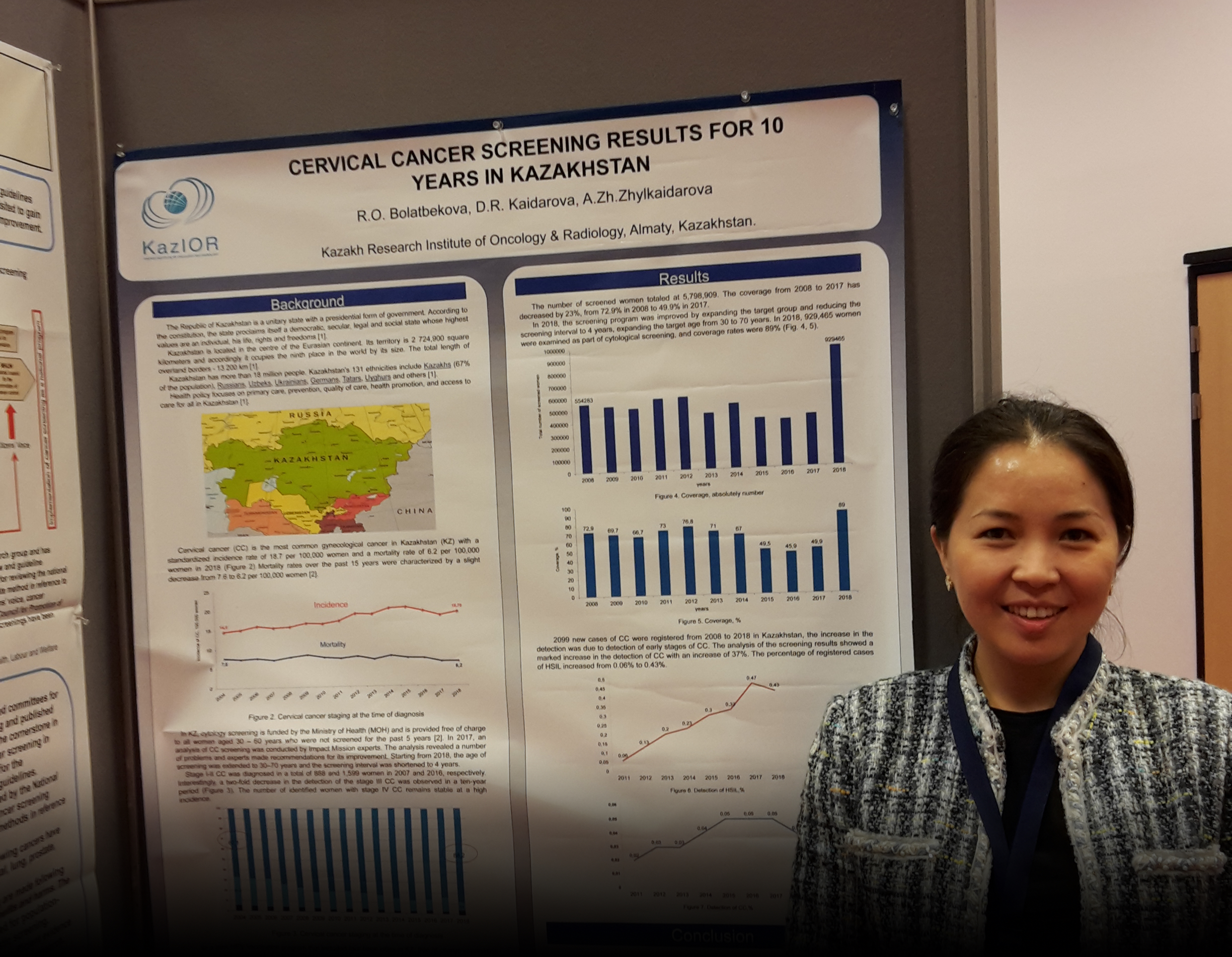Strengthening Global Cancer Research
AECA is a scientific facilitator in Eurasia, skilled at securing resources to strengthen cancer research through engagement with Ministries of Health, leaders of research institutes, and other regional decision makers. AECA research programs focused on enhancing the understanding of the biology and etiology of cancer, discovering and implementing effective strategies for prevention, and developing new approaches for the detection and treatment of cancer.
(Left to Right) Dr. Sergey Deev and Dr. Vladimir Demushkin of Institute of Bioorganic Chemistry invite Dr. Paul Engstrom of Fox Chase to their biomedical labs
Based on international interest and opportunity, one of AECA’s current scientific priorities focuses on liver cancer. Due to high incidence of the disease in Eurasia, these areas are targeted sites to understand the biology of hepatocellular carcinoma (HCC) and case distribution in various stages. AECA is able to provide U.S. researchers with access to regional HCC tissue samples to learn more about the etiology of the disease and variations according to ethnicity and genetic make-up. This work encouraged the nation to join the U.S. NCI’s Task Force for Hepatobiliary Cancers.
AECA is committed to palliative care as another international focal point in the cancer control landscape. AECA engaged with various political, academic, and scientific stakeholders to encourage legislative and regulatory change within palliative care program planning and development throughout Eurasia. As programmatic implementations go into effect in the region, U.S. experts desire to create palliative care program models that may be applicable to local, limited-resource areas. This capacity building led to the opportunity for leading U.S. palliative care experts to initiate U.S. government grant applications focused on future advances in palliative care research.
As interest in cancer screening topics have continued to gain traction among the international cancer research community, AECA has connected stakeholders across the U.S. and Eurasia to discuss best practices for increasing the standardization of practice and improving the quality of programs worldwide.
Through the first Eurasian Cancer Screening Congress, AECA led the development of a robust regional network of cancer screening professionals working in low- and middle-income countries in Eurasia. Practitioners were able to share novel techniques using data-driven decisions to assess the feasibility of implementation of screening programs in these settings. This engagement increased the volume of scientific abstracts from the region for presentation at the 2019 International Cancer Screening Conference in Rotterdam, Netherlands, organized by the U.S National Cancer Institute and Erasmus University Medical Center located in Rotterdam, Netherlands.
AECA remains committed to building relationships between U.S. and Eurasian collaborators that lead to improved research, practice, and policies around early detection, diagnosis and treatment of cancer, among other noncommunicable diseases.


